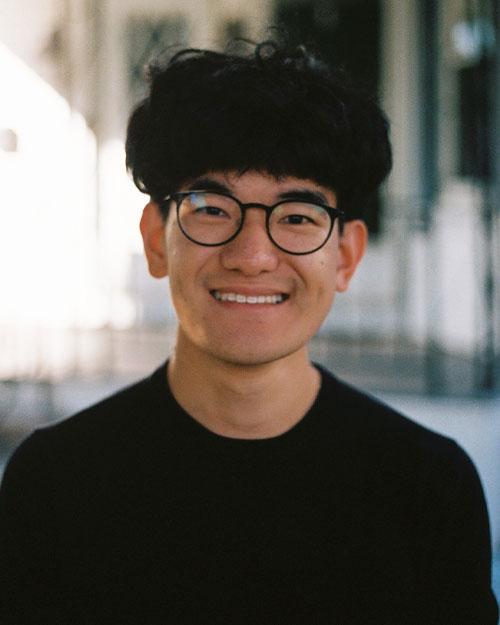Instructor Spotlight: John Cho

Tell us about yourself and what inspired you to teach this course
I was never very cognizant of my Korean identity until college. Though I was born and raised in the U.S., I lived in Korea for six years prior to moving to Tufts. In Korea, everyone, even foreigners at my international school, had at least a basic understanding of Korean history and culture. Of course, the situation is quite different in the U.S. It was within this context that my interest in creating this course formed. In my freshman year, I discovered that Tufts did not (and still does not) offer any course dedicated to Korean language, culture, or history. Since then, I’ve always wanted to bring greater visibility to Korean studies at Tufts, and I finally got my chance this year through the ExCollege.
Your course focuses on the history of the Korean peninsula from the late 19th century to today. Can you tell us about a historical era or instance that you think is often overlooked?
People often take for granted the modern, developed, and democratic country South Korea is today. It wasn’t always like this, and the decades after the Korean War (1950-1953) demonstrate South Korea’s dramatic transformation. Up until the 1970s, there was debate over whether South Korea would ever be economically successful, especially without U.S. support. North Korea was arguably the more “successful” country in the initial decades after the Korean War. South Korea was economically underdeveloped until the 1970s, and it grappled with authoritarian rule until the late 1980s.
However, the “Miracle on the Han”, South Korea’s rapid economic growth in the 1970s, and the democratization movements of the 1980s are emblematic of the intense changes many of us have never learned about. This is what the course aims to address in our exploration of the past 150 years. How does Korea go from a hermit kingdom exploited by foreign powers to two distinct countries, one a dictatorship and the other a thriving cultural powerhouse? What happened in between?
Almost every week in your class you focus on a “cultural topic.” Can you tell us a bit more about what this means and how these topics influence your class? Could you give us some examples?
These topics cover various aspects of Korean culture that ground the course’s historical content in contemporary Korean society. They range from an overview of the Korean written language, to a discussion on the patriotic fervor in sports, to the tenets of the national Korean identity today. One week, we spoke about our families’ histories. Students shared photos or items that they felt represented their family’s history and identity. I shared a number of old family photos of my grandmother and her children. We had this discussion to bring the statistics of our content to life, to show that beyond those big names that shaped history, millions also survived and lived through that history.
Your final project is a presentation. What are some examples of topics students are interested in researching?
A major theme, especially in the first half of our course, has been the influence of foreign powers in shaping modern Korea, from Russian-Chinese-Japanese competition for influence in Korea to U.S. patronage in South Korea after the Korean War. Some students may further research this theme, comparing and contrasting the role foreign powers have played in dictating Korea’s destiny in the past century. Other students plan on presenting on contemporary women’s issues in South Korea, a great topic given Korea’s history as a patriarchal society. Several students also expressed interest in the Korean War and Japanese occupation. One interesting research question relates to how one’s socioeconomic status affected the experience of living through the Occupation. Another focuses on the historical memory of the War and Occupation, and how it influenced family histories today. All in all, we have a plethora of topics that I’m excited to see students present about!
What do you hope that students will take away from your course?
Overall, I hope my students can walk away not only with a better understanding of how the past 150 years have shaped Korea but a deeper interest in learning more about Korean history and culture. In a 13-week course, I cannot do justice to Korea’s rich history nor properly honor all those who suffered during the country’s most tragic moments; many of our units could be stand-alone courses. This class, however, aims not to cover every detail of Korean history, but to present the larger historical themes in our content. Korean history is complex; this course shows the nuance in that history and how the most pivotal moments have defined Korea today. I don’t necessarily need my students to walk away with in-depth historical expertise. What I hope is that, even after the course ends, they retain the desire to learn more about Korean history and culture.
John Cho (he/him) is a senior at Tufts University studying International Relations and pursuing a Master's in Law and Diplomacy at the Fletcher School. He is from New Jersey but spent six years in Seoul, South Korea before coming to Tufts. John is a co-president of the Tufts Korean Student Association. In his free time, John enjoys cooking, playing basketball, and engaging in lm photography.